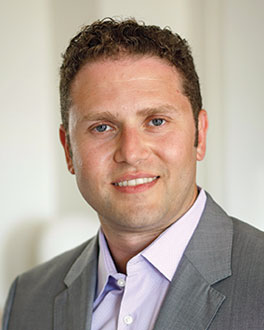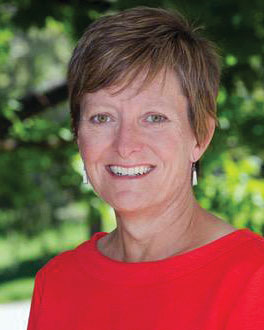During the pandemic, sleep was in short order for many people. In one survey, 56 percent of U.S. adults said they have experienced more sleep disturbances—ranging from problems falling or staying asleep to having disturbing dreams or nightmares—in the past year and a half. In fact, this has been so common, the phenomenon has been given a name—COVID-somnia.
Pandemic-related sleep issues haven’t discriminated. Young and old people alike report some sleep-related problem. Long term and post-acute care centers not only need to identify and address sleep disturbances in their residents but in their staff as well.
Wide Awake, Not Dreaming
Numerous factors have contributed to the widespread sleep disruptions. “Stress, anxiety, changes in schedules, and increased caffeine or alcohol consumption can all contribute to sleep problems,” says Steven Buslovich, MD, MS, CMD, a New York-based geriatrician and president of Patient Pattern. At the same time, chronic pain, thyroid disease, dementia, and other medical issues can cause sleep disruptions.
 Numerous prescription medications can cause insomnia, says Robin Fine, RPH, a consultant with Forum Extended Care Services. These include selective serotonin reuptake inhibitors (antidepressants), dopamine agonists, psychostimulants and amphetamines, anticonvulsants, steroids, beta agonists, and theophylline.
Numerous prescription medications can cause insomnia, says Robin Fine, RPH, a consultant with Forum Extended Care Services. These include selective serotonin reuptake inhibitors (antidepressants), dopamine agonists, psychostimulants and amphetamines, anticonvulsants, steroids, beta agonists, and theophylline.
It is important not to make assumptions about what is causing someone’s sleep issues or that they are normal or not worth addressing. “We have to determine what is causing the problem,” Fine stresses. “Once we identify the root cause, we can begin to address it with targeted interventions.”
Getting to the bottom of a resident’s sleep disturbances or even getting the person to admit or realize he has a problem can be a challenge. “We need to make asking about sleep a regular part of our interactions with residents,” suggests Buslovich. This doesn’t just means asking how he is sleeping. Instead, it calls for a deeper dive and inquiring if he is falling asleep quickly, if he wakes up in the middle of the night, if he experiences early morning wakening with the ability to return back to sleep, or if he is sleeping later than usual.
By identifying and addressing sleep problems early, it is possible to prevent falls, behavioral issues, and other problems that can result due to lack of sleep.
“We don’t generally focus on sleep as a quality measure, but looking at sleep patterns and sleep disturbances can give you insights into other things that are going on, such as depression or untreated pain. All of these tend to manifest at night. Inquiring about sleep is a gateway question to discovering other issues,” Buslovich notes.
Lea Watson, MD, a Colorado-based geriatric psychiatrist, says, “[Certified nurse assistants] can walk down the hall at night and peek into residents’ rooms to see if they are asleep. However, we need other, more accurate means to assess sleep, such as the use of wearable devices.”
Treating COVID-somnia
Instead of starting with medications, says Watson, it is important to consider nonpharmacologic solutions. For instance, environment interventions such as reducing noise, light, and room temperature can help. Aromatherapy and white noise or sound machines are other options.
 Good sleep hygiene—getting up and going to bed on a regular schedule, limiting caffeine intake to the morning hours, and getting some exercise during the day—also can make a difference. “When I get calls about patients having problems sleeping, they often aren’t doing these things,” Watson says. “It’s important not to assume that people know about sleep hygiene.”
Good sleep hygiene—getting up and going to bed on a regular schedule, limiting caffeine intake to the morning hours, and getting some exercise during the day—also can make a difference. “When I get calls about patients having problems sleeping, they often aren’t doing these things,” Watson says. “It’s important not to assume that people know about sleep hygiene.”
For instance, some people may think that wine or other alcoholic beverage before bed will help them relax and go to sleep when, in fact, it may result in disrupted sleep.
Don’t underestimate the power of sunshine and light on sleep. “Natural sunlight in the morning can help reset your circadian rhythm, the body’s 24-hour clock that coordinates lots of processes, including sleep,” Watson says.
Positive Actions
Exercise is key to good sleep, and this has been challenging during lockdowns and quarantines. “Re-entry phenomenon is a huge issue. Our residents are so used to having their activity restricted. We need to rebuild their trust and confidence to get out do things they want to do,” Watson says. “We’ve seen a drop in enthusiasm about activities, and we have to find ways to build this back up.”
Patients or families may be tempted to use over-the-counter sleep aids, but no decision should be made without consulting a physician, pharmacist, or other clinician. “These products aren’t without side effects and actually may not be as effective as changing behaviors and employing nonpharmacologic interventions,” says Watson.
As more family come in for visits, Fine says, “They will want to bring in foods and take residents out for meals and social events. It is important to remind them about the impact of caffeine, alcohol, sugar, eating heavy meals before bedtime, and other things on sleep.”
At the same time, she suggests, remind family to reach out to the physician, pharmacist, or other practitioner if their loved one isn’t sleeping well, instead of bringing in over-the-counter products, herbals, or other prescriptives.
Prescription drugs should be a last result and not a first-line treatment, Watson says. “Many approved hypnotics on the market have a limited evidence base for outcomes. And there is a huge myth that sleeping pills are robustly helpful, but this too is based on limited data, and they have serious side effects.”
When prescription drugs are necessary, she says, “I don’t put anyone on long-term use of sleep medicines. They always should be scheduled and not be given PRN. This reinforces the positive loop of having to demonstrate the need for the meds regularly over time.”
Fine agrees: “You can’t just throw medication at the problem. You have to do a root-cause analysis. If you find that a resident is on a medication, such as a beta-blocker for cardiac issues that can’t be changed, you have to look at other ways to improve sleep quality.”
When Sleeplessness Slams Staff
Team members may feel tired or have trouble sleeping, but they also may just shrug it off or be hesitant to admit it. “Despite increased attention to this issue, there is still a lack of awareness,” says Buslovich. At the same time, he says, “Sleep deprivation is common in this field, but that doesn’t mean it’s okay or that we can’t help people get better sleep.”
Watson concurs and says, “This is absolutely a real problem. People are homeschooling their children and going to work. They’re overburdened and overworked, and they’re not doing normal self-care.” However, people aren’t likely to report their lack of sleep.
“There is a misplaced idea that lack of sleep says you’re working hard. Frontline staff are sleep-deprived but don’t think to report it,” she says, which is because they often don’t identify insomnia as a chief complaint.
When people aren’t sleeping well, particularly because of stress or anxiety, it can be tempting to self-medicate with over-the-counter medications, illicit substances, and/or alcohol. It is important to encourage staff to take positive, safe, and healthy approaches to better sleep.
“We may not be able to improve quantity of sleep, but we can help people get better quality of sleep,” says Buslovich. It is important to encourage staff to pursue exercise, healthy eating, and mental and physical rejuvenation and give them opportunities via efforts such as a lunchtime walking group and onsite yoga classes, easy access to healthy snacks, and mindfulness meditation training.
Willing Watchfulness
Jea Theis, MSW, LCSW, LIMHP, of Omaha Therapy and Arts Collaborative, stresses, “Anything we consume can contribute to our distress, which can impact our sleep. For instance, feeding ourselves a steady diet of TV news or other media increases stress and anxiety. We call it secondary trauma exposure, and we need to limit our consumption of these things.”
Providing staff with links to free downloads of music, movies, and books may encourage them to turn off the news and pursue more positive, uplifting diversions.
It can be challenging, but promoting a work-life balance is important, Theis says. Sending and receiving after-hours work-related emails or texts can increase stress and make it harder for people to relax and clear their minds. It may help to encourage managers and team leaders to think twice before sending a late-night message to a colleague or employee and consider: Is this urgent or can it wait until morning?
Moving forward, says Theis, “Be alert. Any time you see a shift in behavior or mood—such as irritability, anger, increased confusion, or lack of focus—in a resident or staff member, that is telling you something. And it may be saying that sleep quality isn’t good. It is important to check in with people, particularly when you see these signs.”
At the same time, she suggests, have integrative therapies readily available, everything from pet therapy and yoga to aromatherapy and mindfulness. “People need things that help them feel good and that bring their bodies to a safer, calmer place,” she says.
On a broader level, it’s about connections, Theis says. “If we just ask people about sleep, we are missing the bigger picture. We need to talk about healthy ways to live, improve their quality of life, and ultimately get quality sleep.”